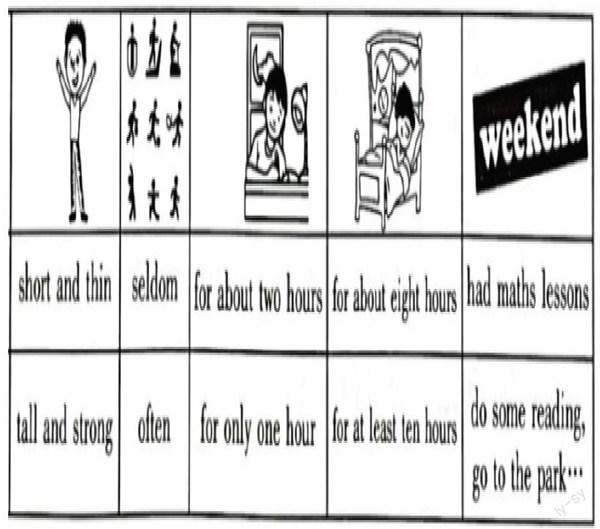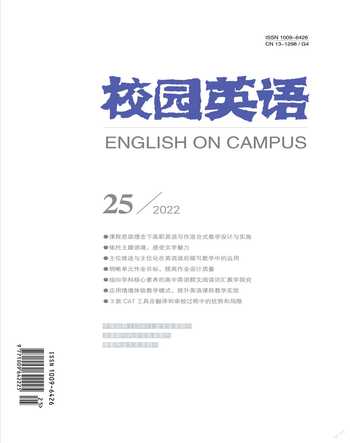基于大单元整体教学的小学英语学历案设计



摘 要:一般过去时是英语学习的重要内容,但因为汉语中没有相对应的语法结构,导致学生时常感到困惑并屡屡犯错。本教学设计以大单元整体教学为出发点,融合串连一系列相关情景的“大任务”,从学生的角度开展“教-学-评”一体化的学习,有效帮助学生自主发掘语言规律与特点,在真实的情境中运用与掌握语言,内化知识,从而减少学习障碍,增强自信心。
关键词:大单元;学历案;一般过去时
作者简介:陈茗琪(1984.07-),女,广东广州人,清华附中湾区学校,中小学一级教师,硕士研究生,研究方向:小学英语教学。
小学英语教学中,教师应注重对学生英语能力和学习能力的培养,使学生能在具体语境中理解、运用一般过去时,能在小组活动中积极配合与合作,具备复习与归纳、联想与观察等综合能力。本文以教科版小学英语六年级上册Module4 “Past Experiences”一般过去时模块复习大单元为例,设计“参与志愿者活动”的系列情景,帮助学生自主内化一般过去时的用法,实现了以下目标:学生成为課堂的主角与中心,主动观察与猜测语料,领悟吸收知识;学生通过同桌操练、小组内采访与分享汇报,真正实现语言输入与输出的有效执行;学生通过阅读与思辨,以读促写,读写交融,结合渗透志愿者申请信的文体写作特征,提升综合能力;通过现代社交媒体的运用,拓宽学生的视野,陶冶学生的美德,增强其自我效能感。
一、学习任务
1.完成Get ready,写出常用动词的过去式。
2.完成Task 1——Let's compare the changes brought by 'Double Reduction Policy', by observing and guessing, and talk with partners.
3.完成Task 2——Let's interview what your group mates did and report.
4.完成Task 3——Let's read Li Hua's diary of a voluntary work and think critically.
5.完成Task 4——Let's write an application for the voluntary work in the GZ library, involving your past experiences.After that, evaluate within classmates.
6.完成检测与练习1,在朋友圈用英语发表一篇美文,描述在广州图书馆当志愿者时发生的具体故事。
7.完成检测与练习2,搜索有关志愿者服务的网络资源,在英语课堂上分享。
二、学习过程
Get ready:write down the verbs in the past tense. (检测目标1)
Review : Let's chant. (课本第42页Rhyme time的小诗)
We helped out
I walked to school with Shirley.
We got there very early.
She said, “Let's clean the classroom.”
So I got out a big broom.
Shirley tidied all the chairs.
I put the desks in pairs.
When the teacher came inside,
She couldn't believe her eyes.
Thumb up for yourself: I know the past-tense verbs.
Task 1:Let's compare.
活动1:Observe and guess: what is changed for the boy? Why? What happened before and what happen now?
活动2:Talk with your partners. (与同桌操练)
A: How_______ the boy now? What about before? B: He _______ tall and strong now. But he_______ short and thin before.
A: He often _______sports now, hasn't he? What about before? B: _______ , he_______. But before he seldom_______sports .
A: What _______ he do on weekends now? What about before? B: He _______some reading and_______ to the park now. But now he_______ maths lessons before
Thumb up for yourself: Our life changed and became more meaningful.
Task 2: Let's interview.
活动1:Take turns to interview your group mates. (小组内相互采访)
Interview form: what did you do on _______ ? (use complete sentences to ask and answer)
活动2:Report your results. (individual presentations)
Suggested version: This is my group mate, _______(Li Hui). He _______ (went swimming) last Monday afternoon after school. He_______ (read a book) last weekend in the morning, and _______(played basketball) in the afternoon. He _______ (enjoyed a show) last weekend evening.
Thumb up for yourself: You know your group mates better and know their meaningful activities.
Task 3: Let's read.
活動1:Li Hua kept a diary. He talked about the meaningful jobs he did. Read it and think.
June 13th, sunny
Last Sunday, I didn't need to do much homework. I did a great job. It was fun and meaningful.
I went to the museum as a volunteer (志愿者). I helped the visitors. I showed them the way. I even talked with the foreigners in English. I told them the interesting stories in our city.
I really enjoyed the jobs in the museum. I did a great job! It was so meaningful!
活动2:Answer the questions in complete sentences according to Li Hua's diary.
What did Li Hua do last Sunday? (at least 3 points)
_________________________________________________________________
Suggested answer: He went to the museum as a volunteer. He helped the visitors. He showed them the way.
Was Li Hua happy? Why?
_________________________________________________________________
Suggested answer: Yes, he was happy. Because he did a great job and he thought it was meaningful.
What do you learn from Li Hua?
_________________________________________________________________
Suggested answer: We learn to help others like Li Hua. / Be a volunteer to help others.
Thumb up for yourself: You want to learn from Li Hua to be a volunteer.
Task 4: Let's write.
活动1:广州图书馆正在招募“小小志愿者”,你很想参加,请写一封申请信。在信里,讲讲你以前类似的经历、做过的事情,说明你能胜任这份工作。(开头结尾已给出,自己再补充至少五个句子。)
Dear sir/madam,
I want to apply for (申请) the volunteer job in the Guangzhou library.
_________________________________________________________________
_________________________________________________________________
_________________________________________________________________
_________________________________________________________________
_________________________________________________________________
Thank you for your time. I hope I can get the job.
Yours
________
活动2:Let's evaluate.(个人展示并全班互评)
Thumb up for yourself: You can be a volunteer and help more people.
三、检测与练习
假如你成功应聘广州图书馆的“小小志愿者”,并且已经完成了任务,准备用英语发一篇朋友圈文章跟大家分享你当志愿者时体会最深的一个小故事。请尽可能使用充足的动词来详细描述该故事。
请畅游有意义的相关网站,搜索更多的乐于助人、回馈社会的故事,认识更多志同道合的志愿者朋友吧,并在英语课上用英语与同学们分享你的收获。
四、学后反思
1.学习本课后,我能准确地使用一般过去时来描述发生过的故事吗?
_______________________________________________________
2.學习本课后,我能发现英语中动词过去式有哪些使用规律?
_______________________________________________________
3.学习本课后,我掌握了一般现在时与一般过去时的哪些区别?
_______________________________________________________
4.学习本课后,我将如何规划日后的课外生活并在英语学习中寻找乐趣?
_______________________________________________________
参考文献:
[1]崔允漷.如何开展指向学科核心素养的大单元设计[J].北京教育(普教版),2019(2):11-15.
[2]温雪,崔允漷.基于学历案的课堂互动研究[J],教育发展研究,2016(15):62-68.

